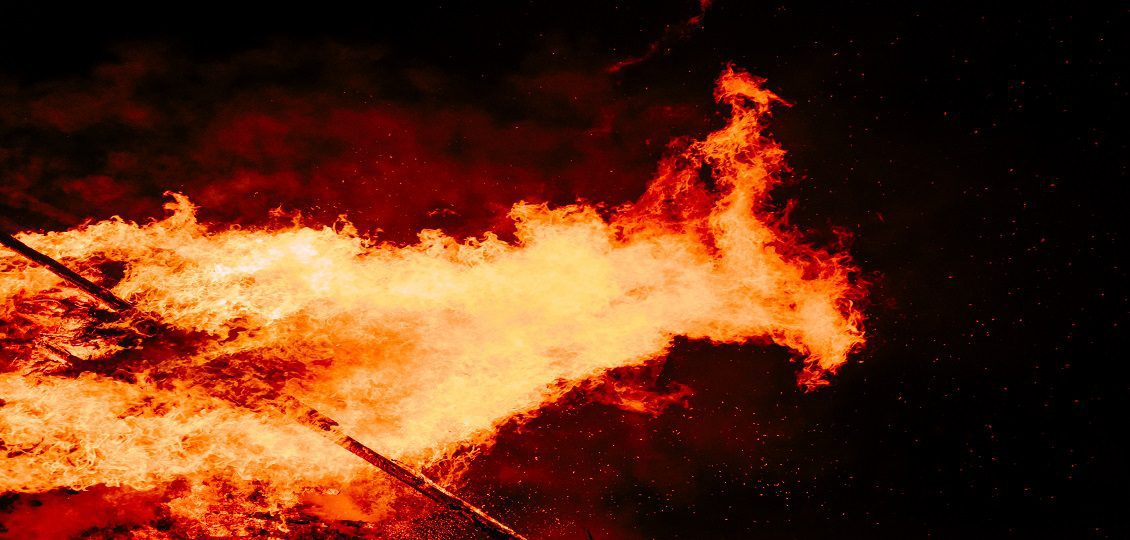By Bill Stainton
I burned the broccolini last night.
As world crises go, this was pretty minor. Still, it served as a useful metaphor for producing under pressure. (Hey, it was useless as a side dish, so I had to do something with it!) Follow me along on this, step-by-step, and you’ll see what I mean.
-
- There’s always more pressure when we’re doing something unfamiliar (all other things being equal). A cardiac surgeon feels more pressure during her first open-heart surgery than her 500th. A pilot feels more pressure during his first solo landing than his 2000th. I felt more pressure producing the first episode of my TV show than I did producing my 350th. The broccolini recipe was a new one for me. It’s an easy recipe, but one with which I was unfamiliar. I’m sure you’ve experienced this in your world, too. For example, remember the pressure you felt on the first day of your current job?
-
- Time seems to speed up when we’re doing something unfamiliar. Like many pilots, the first plane I flew was a Cessna 150. It’s a pretty simple airplane; still, landing any airplane is a complex process. The first few times I tried it (with an instructor sitting beside me), everything seemed to be happening so fast, and I kept forgetting steps. By the time I had a few dozen landings under my belt, it was getting easier, and by the time I’d done a few hundred landings, it felt downright leisurely! But the first time I flew a higher-powered, retractable landing gear plane, it once again seemed like too many things were happening at once. The broccolini recipe was my cooking version of a retractable gear airplane. You’ve experienced this too, right? (Perhaps not with broccolini, but with other things.)
- It’s easy to miss steps when we’re doing something unfamiliar. Just like my experience landing a plane, we tend to miss things in the beginning. With the broccolini recipe, I forgot to turn the heat down at a crucial time. With practice and repetition, though, steps that we once struggled to remember become second nature. They become a part of our “muscle memory.”
Each of these three things adds to the pressure and makes it harder for us to produce great results. So what should you do about it?Three things:
-
- Use a checklist. Professional pilots with hundreds of thousands of hours still use checklists. A recipe is a checklist. I use checklists for my speaking engagements. (There are few things worse than realizing you’re supposed to be in New Orleans tomorrow, and you forgot to buy an airline ticket!) If you’re faced with an unfamiliar task, and it’s important to you, create and use a checklist!
-
- Practice, practice, practice! Flight students perform scores of landings – under many different situations – with an instructor before they every attempt them on their own. Students in culinary school spend hours practicing mundane actions like slicing an onion. Professional pianists will spend several hours practicing a single measure of a difficult concerto. If you know you have a high-pressure situation coming up (for example, a major presentation), practice it over and over again. Here’s your mantra: Don’t practice until you get it right; practice until you can’t get it wrong!
- Find a mentor. When I was a flight student, I had an instructor. Cooks often apprentice under the tutelage of a master chef. Whatever it is that you need to do, find someone who’s done it – successfully – before. (Sometimes these people live in books.) Until you build up your own experience, you can borrow the experience of others.
Producing under pressure is hard.It’s supposed to be. That’s why so few leaders do it well. But every master has been where you are, and, using tools
like these, you can be where they are!
About
For 15 years, Executive Producer Bill Stainton led his team to more than 100 Emmy Awards and 10 straight years of #1 ratings. Today Bill helps leaders achieve those kinds of results–in THEIR world and with THEIR teams. His website is http://www.BillStainton.com









